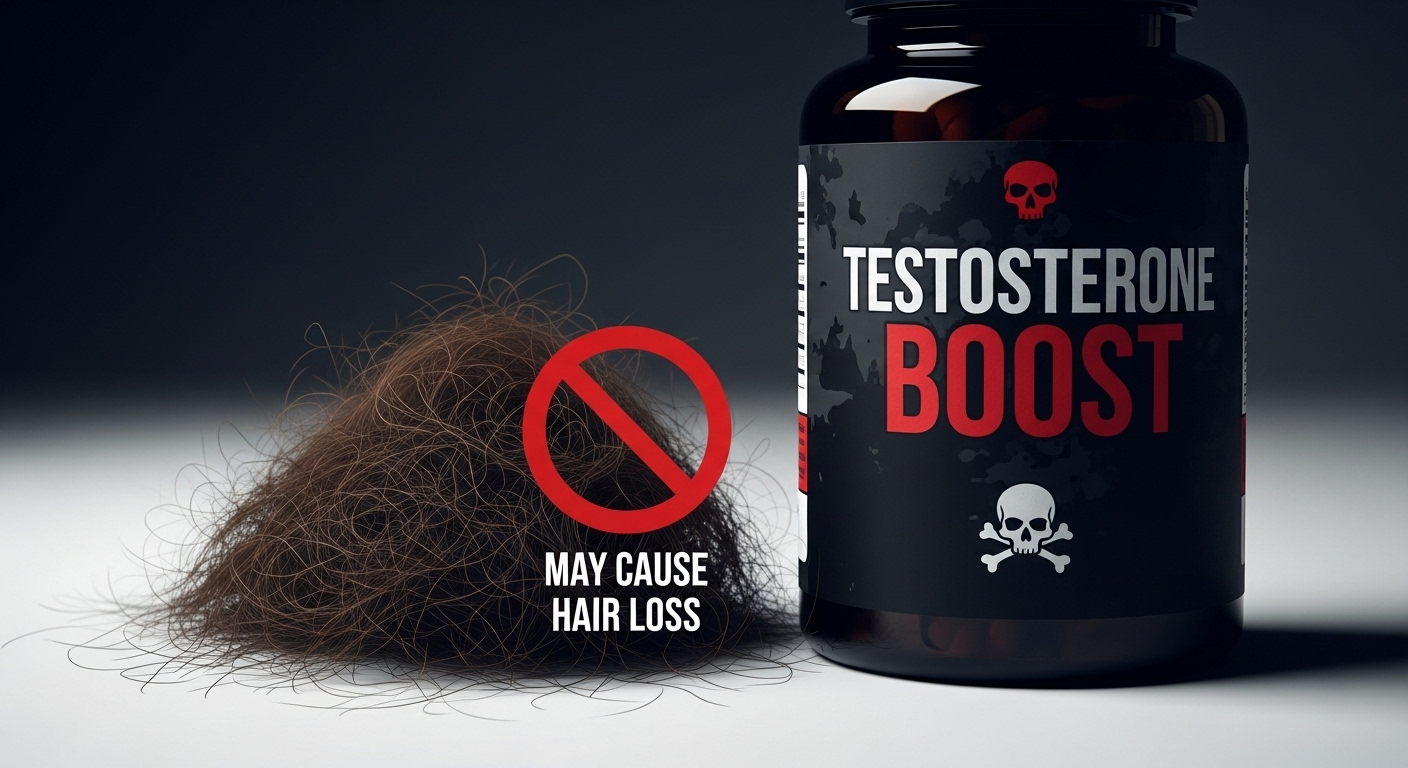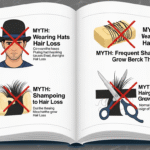Are you concerned that testosterone supplements might cause hair loss? Many individuals use testosterone supplements for various reasons, but the potential link between testosterone and hair thinning often causes concern. Does Testosterone Supplements Cause Hair Loss? In this article, we'll explore whether testosterone supplementation leads to hair loss, its impact on hair follicles, and how …
Are you concerned that testosterone supplements might cause hair loss? Many individuals use testosterone supplements for various reasons, but the potential link between testosterone and hair thinning often causes concern.
Does Testosterone Supplements Cause Hair Loss? In this article, we’ll explore whether testosterone supplementation leads to hair loss, its impact on hair follicles, and how you can manage any possible effects. You’ll also discover expert tips to maintain healthy hair while optimizing testosterone use. Read on to understand the connection, risks, and solutions.
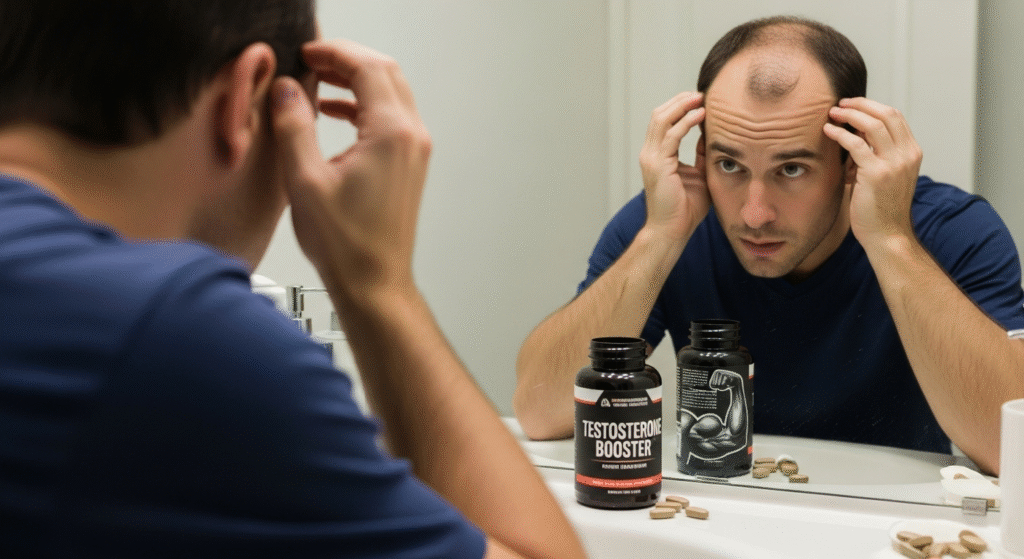
Understanding Testosterone Supplements
What Are Testosterone Supplements?
Testosterone supplements are designed to boost testosterone levels in the body. Testosterone is a vital hormone that plays a crucial role in muscle growth, bone density, mood regulation, and overall well-being. These supplements come in various forms, including:
- Oral supplements: Pills or capsules that are ingested.
- Injectable testosterone: Administered via injections, typically in a healthcare setting.
- Topical treatments: Gels or patches applied to the skin.
Testosterone supplementation is most commonly used for treating low testosterone levels, a condition known as hypogonadism. However, some people also use testosterone to enhance athletic performance or address signs of aging, such as decreased libido or energy levels.
How Do Testosterone Supplements Work in the Body?
Testosterone supplements work by increasing the levels of testosterone in your bloodstream. Testosterone is produced naturally by the body, but certain conditions or factors can lead to a decrease in its production. By supplementing testosterone, individuals aim to bring their levels back to a healthy range.
When testosterone levels increase, the body’s hormonal balance shifts, potentially impacting various systems, including the hair follicles. Higher testosterone levels can lead to an increase in Dihydrotestosterone (DHT), a derivative of testosterone that can affect hair follicles, particularly on the scalp.
The Link Between Testosterone Supplements and Hair Loss
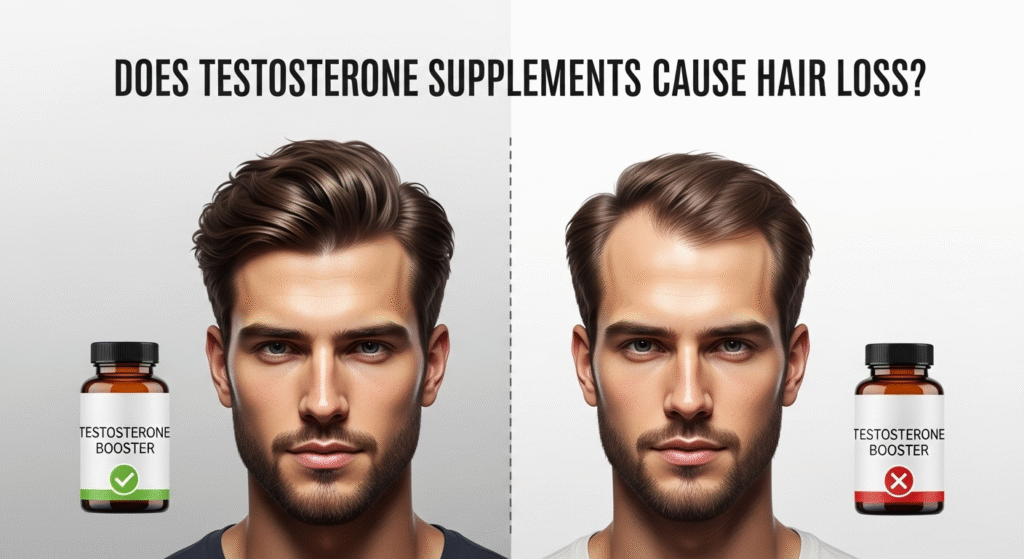
Does Testosterone Supplementation Lead to Hair Loss?
The relationship between testosterone and hair loss is primarily driven by Dihydrotestosterone (DHT), a potent form of testosterone. DHT binds to androgen receptors on hair follicles, leading to follicle shrinkage, reduced hair growth, and potentially hair loss.
While testosterone supplementation increases testosterone levels, it also raises DHT levels, especially in individuals who are genetically predisposed to hair loss. This process, known as androgenetic alopecia or male-pattern baldness, is commonly triggered by high DHT levels.
Genetics and Hair Loss
Genetics plays a critical role in determining how sensitive your hair follicles are to DHT. People with a family history of male-pattern baldness or female-pattern thinning are more likely to experience hair loss as a result of higher testosterone or DHT levels.
Individuals with genetically sensitive hair follicles may notice hair thinning or receding hairlines more quickly, while others may not experience significant hair loss at all.
Common Symptoms of Hair Loss from Testosterone Supplements
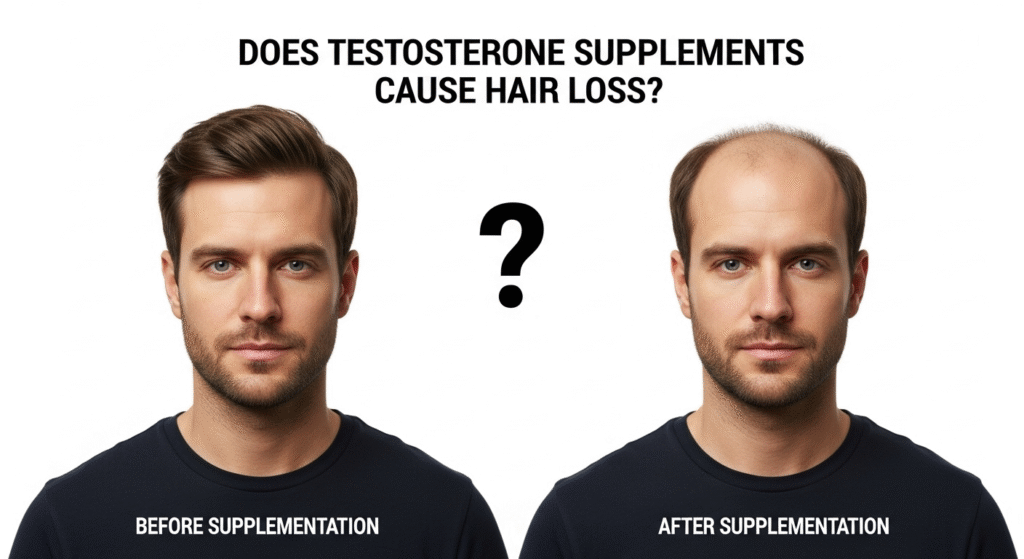
Signs of Hair Thinning or Loss
Hair loss caused by testosterone supplementation typically manifests in specific patterns:
- Thinning hair at the temples or crown: These are common areas for androgenetic alopecia to appear.
- Receding hairlines: The hairline may gradually move backward, especially at the temples.
- Bald spots: In severe cases, bald patches may form on the scalp.
If you notice any of these symptoms shortly after starting testosterone supplementation, it’s important to consult a healthcare professional.
When to Seek Help
It’s essential to monitor changes in your hair and seek medical advice if you notice significant thinning or bald spots. A doctor can help determine if your hair loss is due to testosterone supplementation or another underlying condition. If the hair loss is linked to testosterone, there are options to manage or reverse it.
Managing Hair Loss While on Testosterone Supplements
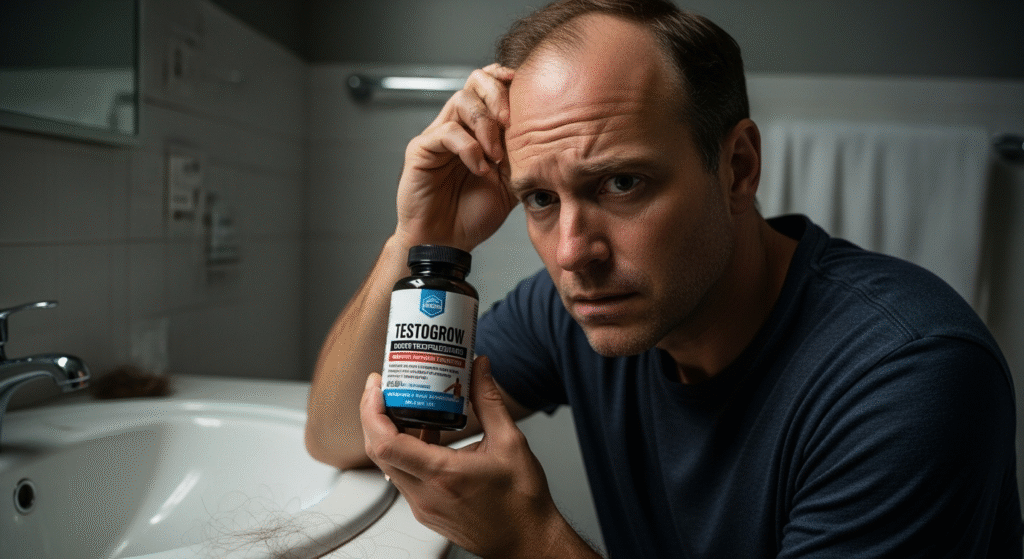
Hair Loss Prevention Strategies
Managing hair loss while using testosterone supplements is possible with the right approach. Some strategies include:
- Medications: Drugs like finasteride (Propecia) work by inhibiting the conversion of testosterone to DHT, potentially reducing the risk of hair loss.
- Minoxidil: An over-the-counter topical treatment that promotes hair regrowth and helps prevent further thinning.
- Regular scalp care: Massaging the scalp and using gentle shampoos may improve circulation and overall hair health.
Non-Medical Options
If you prefer non-medical options, you can consider using shampoos and conditioners designed to combat hair thinning. Many of these products contain ingredients like biotin, caffeine, and ketoconazole, which are known to promote hair growth and strengthen hair follicles.
Additionally, natural remedies such as essential oils (e.g., rosemary or peppermint oil) have been shown to support healthy hair growth.
Expert Insights on Testosterone and Hair Loss
Expert Opinion: Dermatologist’s Take on Testosterone and Hair Loss
“Testosterone supplementation can lead to hair thinning, especially in individuals with a genetic predisposition to androgenetic alopecia. However, the effects are not inevitable, and there are various treatment options available to manage or even reverse hair loss.”
It’s crucial to approach testosterone supplementation with an understanding of the potential risks and take preventive measures if necessary.
Case Studies: Real-Life Experiences of Users
Many users report experiencing varying degrees of hair loss when taking testosterone supplements. One individual, John, a 45-year-old man who started testosterone therapy for low energy levels, noticed thinning at his temples after several months. With the help of his healthcare provider, John began using finasteride, which slowed the hair loss and helped him regrow some hair.
FAQs
Does testosterone cause permanent hair loss?
Testosterone-induced hair loss is usually temporary, and in many cases, it can be managed with proper treatment. If left unchecked, however, it may lead to permanent baldness.
How soon can hair loss happen after starting testosterone?
Hair loss may begin within several months of starting testosterone supplements. The timeline varies depending on genetics and sensitivity to DHT.
Are there any ways to reverse hair loss caused by testosterone?
Yes, medications like finasteride and topical treatments like minoxidil can help reverse or reduce hair loss caused by testosterone. In some cases, hair transplants are a viable option.
Conclusion and Next Steps
In conclusion, testosterone supplementation can contribute to hair loss, especially for those genetically predisposed to androgenetic alopecia. While this is a concern for many, it’s important to understand that hair loss isn’t inevitable. With the right approach, including medications, topical treatments, and proper hair care, you can minimize or prevent hair loss.
If you’re concerned about testosterone-induced hair loss or need personalized advice on how to manage the risk, book a consultation with Dr. Uzma Irfan, an ISHRS-certified surgeon in Islamabad today. Learn how you can maintain healthy hair while optimizing your testosterone levels.

